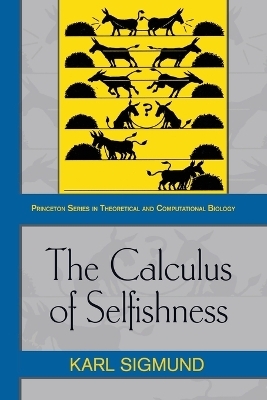
The Calculus of Selfishness
Seiten
2016
Princeton University Press (Verlag)
978-0-691-17108-1 (ISBN)
Princeton University Press (Verlag)
978-0-691-17108-1 (ISBN)
- Lieferbar (Termin unbekannt)
- Versandkostenfrei
- Auch auf Rechnung
- Artikel merken
How does cooperation emerge among selfish individuals? When do people share resources, punish those they consider unfair, and engage in joint enterprises? These questions fascinate philosophers, biologists, and economists alike, for the "invisible hand" that should turn selfish efforts into public benefit is not always at work. The Calculus of Selfishness looks at social dilemmas where cooperative motivations are subverted and self-interest becomes self-defeating. Karl Sigmund, a pioneer in evolutionary game theory, uses simple and well-known game theory models to examine the foundations of collective action and the effects of reciprocity and reputation. Focusing on some of the best-known social and economic experiments, including games such as the Prisoner's Dilemma, Trust, Ultimatum, Snowdrift, and Public Good, Sigmund explores the conditions leading to cooperative strategies. His approach is based on evolutionary game dynamics, applied to deterministic and probabilistic models of economic interactions.
Exploring basic strategic interactions among individuals guided by self-interest and caught in social traps, The Calculus of Selfishness analyzes to what extent one key facet of human nature--selfishness--can lead to cooperation.
Exploring basic strategic interactions among individuals guided by self-interest and caught in social traps, The Calculus of Selfishness analyzes to what extent one key facet of human nature--selfishness--can lead to cooperation.
Karl Sigmund is professor of mathematics at the University of Vienna. He is the author of Games of Life (Penguin), coauthor of Evolutionary Games and Population Dynamics, and a contributor to Nature and Science.
Preface vii Chapter 1: Introduction: Social Traps and Simple Games 1 Chapter 2: Game Dynamics and Social Learning 25 Chapter 3: Direct Reciprocity: The Role of Repetition 49 Chapter 4: Indirect Reciprocity: The Role of Reputation 82 Chapter 5: Fairness and Trust: The Power of Incentives 104 Chapter 6: Public Goods and Joint Efforts: Between Freedom and Enforcement 123 Chapter 7: Cooperation in Structured Populations 145 References 155 Index 169
| Erscheinungsdatum | 03.06.2016 |
|---|---|
| Reihe/Serie | Princeton Series in Theoretical and Computational Biology |
| Zusatzinfo | 51 line illus. |
| Verlagsort | New Jersey |
| Sprache | englisch |
| Maße | 152 x 235 mm |
| Gewicht | 255 g |
| Themenwelt | Geisteswissenschaften ► Psychologie ► Sozialpsychologie |
| Mathematik / Informatik ► Mathematik ► Angewandte Mathematik | |
| Mathematik / Informatik ► Mathematik ► Finanz- / Wirtschaftsmathematik | |
| Naturwissenschaften ► Biologie ► Evolution | |
| Naturwissenschaften ► Biologie ► Genetik / Molekularbiologie | |
| Wirtschaft ► Volkswirtschaftslehre ► Mikroökonomie | |
| ISBN-10 | 0-691-17108-4 / 0691171084 |
| ISBN-13 | 978-0-691-17108-1 / 9780691171081 |
| Zustand | Neuware |
| Haben Sie eine Frage zum Produkt? |
Mehr entdecken
aus dem Bereich
aus dem Bereich
Buch | Softcover (2024)
Heyne (Verlag)
CHF 16,80


